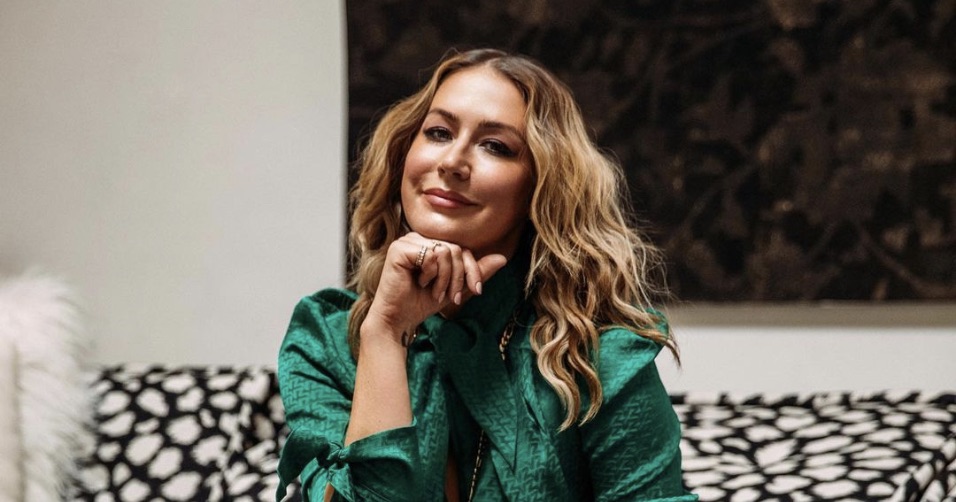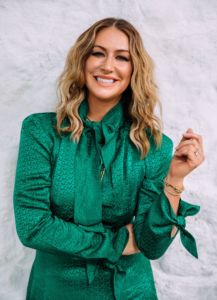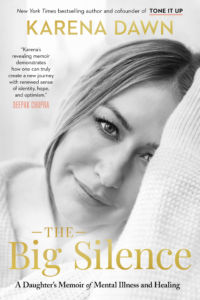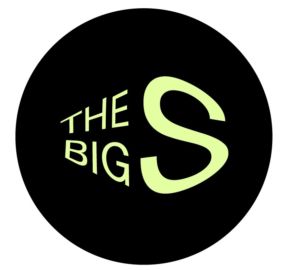

You may know and love Karena Dawn as a wellness entrepreneur and the co-founder of the women’s fitness community Tone It Up, but she also just released a new memoir titled “The Big Silence,” which chronicles her emotional journey as the abandoned daughter of a homeless schizophrenic mother who learns to cope with the trauma of her childhood and escape her own inner demons.
In addition to her memoir, Karena has founded a 501(c)3 charitable organization, also called “The Big Silence,” with the stated goal of “providing resources and support to anyone impacted by mental health.”
We spoke with Karena to learn more about both iterations of “The Big Silence,” and how she has overcome her personal struggles to find happiness and ultimately help normalize conversations about mental health.
So Karena, you’re just setting out on a road trip book tour for “The Big Silence,” right?
Yes, so I think we have between 11 and 13 stops across the country for Mental Health Awareness Month for all of May. And yes, we literally just started on the road yesterday.
You are making a stop in Indianapolis at MAVEN SPACE on May 13th (which we are so excited about); why did you choose to do so?
That’s my hometown. I was born in Peru, Indiana, and moved to Indianapolis around first grade, and was there until I was 18.
I am a born and raised Indiana girl, and then I moved to California when I was 18. So, I want to do a hometown visit because I’ve never gone there on a Tone It Up tour, and we’re also doing a documentary of sorts possibly.
I also wanted to come there and see my family; that’s my old stomping grounds. I haven’t been there, gosh, probably since 2018. And I went to Broad Ripple High School, which I hear is no longer there.
How did you end up in California from Indianapolis?
Well, I don’t know how much you know about me and my story, but my mom suffered from a mental health condition, schizophrenia and depression, and ironically, I ended up in California because when I was 17 or 18, she disappeared from our home and was a missing person for many months. This is all in the book too, but my dad hired a private investigator and he found her in Los Angeles.
So, at 18 I thought that I could go to LA and find her and bring her home, but I fell in love with LA and I ended up moving there three months later. That’s how I ended up in California.

Wow. I have been reading your book and it’s just tremendous. I have to tell you that I have already cried twice reading it, and I am just in awe of all that you’ve overcome and how you’ve had the strength to do what you’ve done.
Thank you. Yeah, it’s not a light read! I tell people that it’s the truth and it’s meant to be inspirational. I was coming from such a broken and dark place as a girl from Indiana who never thought she would achieve anything, or become anything, or be successful at anything, then letting all those guards down and finding myself and forgiveness and being able to actually build something great.
And now, being able to help other women through fitness and mindfulness and meditation, and with “The Big Silence” and a foundation speaking openly about mental health.
I was struck by the fact in the book that you said that when you were around 11 years old, you had a vision board that you made about the fact that you wanted to be a fitness instructor. And I thought that it was so amazing that you made your vision come to life. Was fitness always a passion of yours?
Yes, and my mother actually inspired me, and I tried to explain to her in her last days how much she meant to me because she spoke a lot about regret and, “I wasn’t a good enough mom, and I wasn’t this,” but I watched her work out to VHS tapes with Jane Fonda and Denise Austin and Kathy Ireland and I would watch her work out and that’s what I wanted to do.
I wanted to be those women, and it’s crazy now, because later in life, I partnered with Jane Fonda on her release of her fitness programming 10 years ago or so, and I’m friends with Denise Austin and I know her daughter. It’s such craziness and manifestation and literally a dream come true, but it’s amazing.
And Deepak Chopra has a quote on the cover of your book. How did that come about?
Another manifestation! I’ve been really deep into meditation for many years, and the past few years I started talking about it more and I write and record meditation. Then I studied under Deepak, and I met his CEO at a retreat and she connected me with him. We just became friends and I started teaching at his retreats as well.
One of the other people on the book is Jewel, the singer-songwriter; she’s become a friend of mine, and she works really heavily in the mental health space. We’re actually partnering during May for Mental Health Awareness Month with her foundation, Inspiring Children Foundation. I don’t know how it all happens.
For people that haven’t read your book yet, can you explain a little bit about why you started this nonprofit and why it’s so important to you?

You know, I’ve been so successful in the Tone It Up space and with that community, but for so long, I’ve wanted to give back even more, and especially for someone like myself, who grew up with mental illness in the family when no one was talking about it and suffered through my own situational depression and suicide attempt, I just felt like it’s always been so hush-hush.
So, I finally was like, “This is the time to do it with the book coming out, raising awareness for mental health and making sure everyone knows it’s okay if you’re not okay.”
But I also wanted to have resources where people can go to; we have our text line, where if you text “HERO” to 741741 you get a free, confidential counselor. The timing just aligned, and I was on a hike with a friend one day and then two weeks later, I just launched it and my heart felt like it was the time to start the nonprofit—especially in today’s society where there’s a lot going on.
Did you have a turning point that made you decide that you wanted to change the path that your life was on?
I did have an “aha” moment. My entire teenage years were very dark. In my own depression, I turned to drug abuse and self-harm, and then when I moved to LA, I just had this moment when I was on a three-day bender, with crack cocaine and who else knows what, and I was partying at the Hollywood clubs and was still up at a park and coming down, and I had this feeling inside that there was something greater that my life was meant to be.
And so from that moment, I worked myself through that and decided to make a change. And I called my dad and I told him I was going to change and that I was really sad and depressed.
I always thought I was going to become like my mother, because my mother was like her father. Her father committed suicide when she was 18, and he was also schizophrenic, and I just always assumed that I would become like them, and so I never really tried to achieve anything. But then it was just that moment, that “aha,” like, “Nope, you’re not like them. You’re not like them, you’re stronger.”
And so yes, I changed from there. It took a lot of time, a lot of therapy, and a lot of self-help books. I worked really hard. I got back into thinking about when was I my happiest, and it was when I was a little girl and I was running.
I ran a half marathon and I wanted to be that fitness superstar. And so, I turned it around. I started surfing in LA and surfing every morning instead of going out to the clubs until 4 a.m., and I signed up for my first triathlon. I trained for it every morning; I ran, I swam, and I hated every moment of it, but I loved it. It became my therapy, and I finished that first race in San Diego. And once I crossed that finish line, and I write about this exact moment in the book, I was like, “Whoa, I just accomplished something.”
It was the simplest thing of just signing up for something and finishing it and accomplishing it. And it told me that I could do anything, and I just went from there.
And you’ve gone pretty darn far. Your dad’s songwriting is featured a lot in your book and I heard that he might perform in Indianapolis at the event, is that the case?
Yes. So, my dad is a therapist. He’s retired now, and he still does private practice, but his outlet since I can remember as a little girl has been writing music and performing. He performs all around Indy on the weekends, at coffee shops and wineries, whatever it may be. Even when I was really young before my mom got sick, I used to go with him and go around and collect tips for him and sell his CDs. I was his little sidekick.
So, yes, he’s a musician, and my sister Rachel who is our executive director, she’s a poet, and his lyrics and her poems are all sprinkled throughout the book and in the chapter openers.
It was so powerful reading them. How do they feel about the book?
Well, I didn’t let anyone read it until it was published. I didn’t even let my husband read it until it was published. I wanted to have that freedom, that creative freedom to just let it be me and what I wanted to put out there without being silenced or having someone say, “You shouldn’t say that.”
They’re very proud. My dad is very proud. He called me two days ago after reading it for the first time. It’s hard for him to get through because he’s reliving his own trauma, but he’s like, “it’s beautiful.” And as he’s reading it, he’s crying, but he’s proud.
Stephanie Groves is the Executive Editor of Indy Maven and she highly recommends reading “The Big Silence.”
All of our content—including this article—is completely free. However, we’d love it if you would please consider supporting our journalism with an Indy Maven membership.






